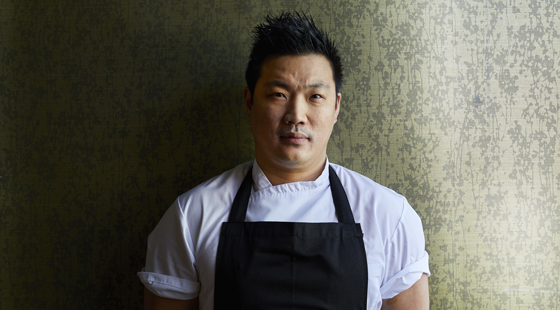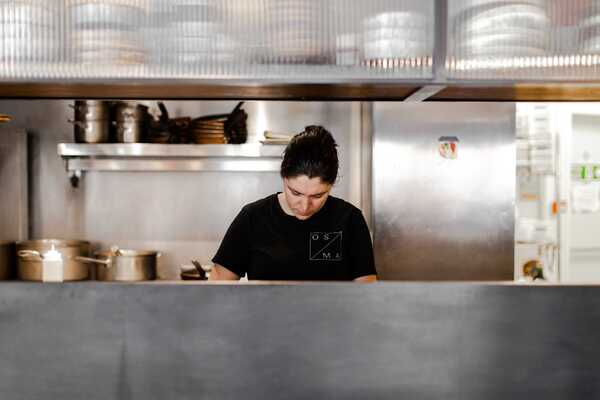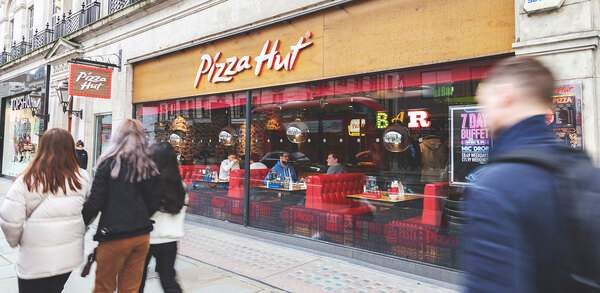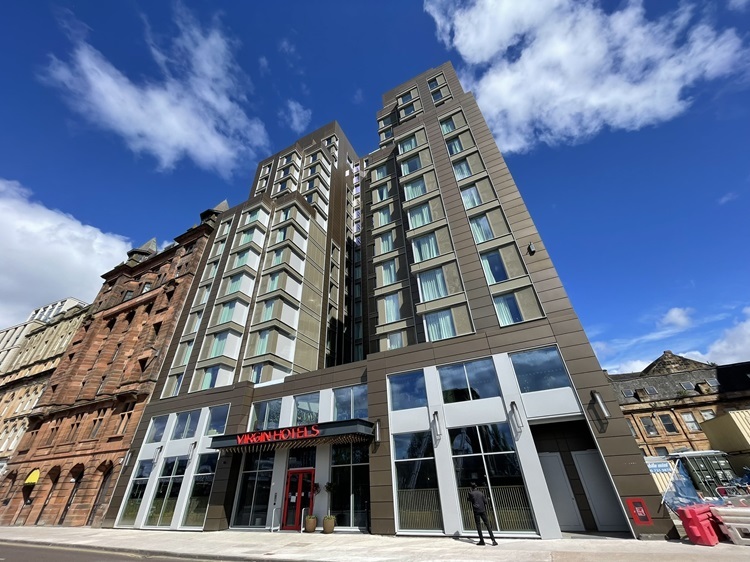Innovation stifled by shortage of Chinese chefs
With the current generation of chefs getting older and a lack of new innovators left to take the reins, the skills shortage gripping the industry is causing a crisis in Chinese cuisine. Emma Lake investigates
February saw thousands of people celebrate Chinese New Year in London's Chinatown. As well as watching dragons dance through the streets of the West End, many of those who gathered would have enjoyed the East Asian cuisine served up in the area's eateries.
But among Chinese restaurateurs there are concerns for the future of their establishments and for a culinary landmark which Ken Hom once said served "the best Chinese food outside of Asia".
A shortage of Chinese chefs is stifling innovation and has left operators struggling to find staff who can create authentic regional dishes.
Lawrence Lee of the London Chinatown Chinese Association explained: "I've been in Chinatown for 34 years and I've seen all the changes. Before we offered a lot of traditional cuisine, most restaurants had different foods, all served to a high standard.
"But now some restaurants are turning to more simplified foods like hot pot. You only need a chef to prepare the ingredients for a hot pot, you don't need the skill.
Strict immigration rules, which require Chinese chefs to be sponsored by an employer and earn more than £30,000 a year, are exacerbating the shortage â" and itâs not just in Chinatown where the difficulties are being felt.
Andrew Wong, owner of Michelin-starred A Wong in Victoria and Kymâs in the City of London, said the skills shortage is affecting anyone in need of chefs. Wong, whose menus set out to illustrate the multiple levels of flavours and textures of Chinese cuisine, said the positions proving difficult to fill include chefs experienced in wok cookery, dim sum, Chinese roasting meats and pastry.
âThe best Chinese food in Europe is in London. So weâre doing better than any other city in this part of the world. Weâre on a par with places like San Francisco, New York, Vancouver or Sydney and Melbourne. But even for us itâs a battle to find the right people. Innovation comes with youth and without a new generation of chefs coming through with the right training, traditional skills and mindset, itâs very difficult for progression or standards to move on.â
Nina Lam, Hakkasanâs head of HR for the UK, Europe and Middle East, agreed. She said: âImmigration systems and processes are increasingly strict, the criteria we have to meet limits talent acquisition from Asia and negatively impacts the offering of Hakkasan Group, and, of course, what the industry and food market can offer.â
In Chinatown, Lee explained that restaurateurs who established their businesses before the enforcement of stringent immigration policies are now reaching retirement age without a new generation ready to step into their shoes.
Wong added: âWe need to change the way people consider chefs. Itâs not only Chinese chefs who are considered not to be âa skilled occupationâ. Changes to this are long overdue; there will be no solution otherwise. There are 16,000 registered Chinese restaurants in the UK who at the moment are set to rely on what will be a dying generation of skilled chefs if things remain as they are.â
Lam said a review of the Tier 2 criteria and the introduction of 18-month training visas for front-line chefs were needed. She said that without changes âinnovation and standards will be status quo. Without the talent, offerings will be limited, businesses will suffer to stay competitive and financially viable, resulting in closures. This is already happening in London.â
In June 2018 Chinatown business leaders took part in a five-hour shutdown, protesting outside the Home Office after the area was subject to a number of immigration raids, which were claimed to be random âfishing expeditionsâ. Lee explained that pressure had built up, with operators facing the same challenges as others across the country â" with rent increases, business rates and staffing costs driving up overheads.
He said: âThe Chinese community in Chinatown are very upset â" they think they canât trust the Home Office. Iâve never seen anything like this in all these years. For the restaurants to all close for five hours and sign up to protest, the issue must be very important to all of them.
âIt would be nice if the government could listen to us because we are the ones having problems in recruiting. We do not want people employing illegal [immigrants], but they could offer a temporary working visa for overseas working, maybe two or three years, without entitlement to benefits or residency. Thatâs fine if it will help ease the strain of the shortage of staff.â
Strict immigration could soon concern the industry at large, as it waits for the UK government to finalise what its policy on migrant labour will look like post-Brexit.
Current plans suggest workers judged to be âhigh skilledâ, will be given free access to live and find employment, while low-skilled workers will be denied long-term visas.
A Home Office spokesperson said: âWe continue to welcome the very top chefs, and skilled chefs are on the shortage occupation list. But we also want to nurture more home-grown talent, and the restaurant sector should offer training to attract and recruit resident workers to meet their staffing needs.
âThe industry is starting to make progress in this area, recruiting and training more chefs in the UK, and this needs to continue.â
If the industry cannot wake government up to its needs, many more could find themselves grabbing a placard and heading to Whitehall.
General work visa (Tier 2)
The general work visa (Tier 2) is available for those from outside the European Economic Area or Switzerland who have been offered a skilled job.
A limited number of chef positions per establishment are covered by the visa, but the applicant must be sponsored and be paid at least £30,000.
Other conditions require the applicant to show they can support themselves financially, have at least £945 in their account for at least 90 days prior to application and show a knowledge of English.
The Tier 2 visa has a maximum term of five years and 14 days.
Chinatown shut down as locals complain that immigration raids are destroying a culinary landmark >>
Get The Caterer every week on your smartphone, tablet, or even in good old-fashioned hard copy (or all three!).


















